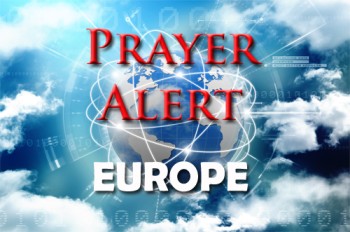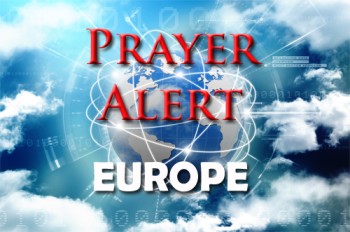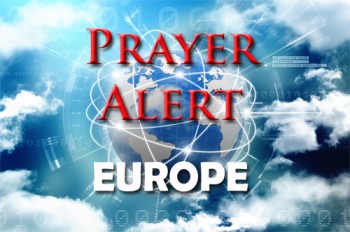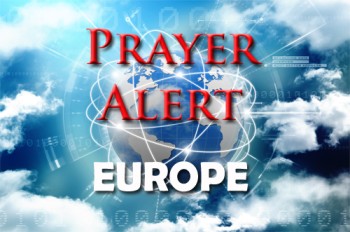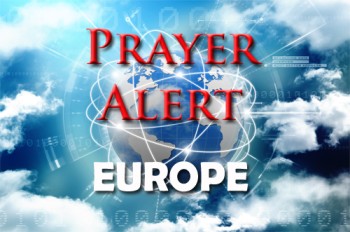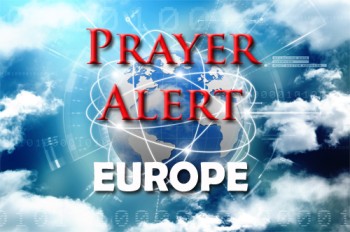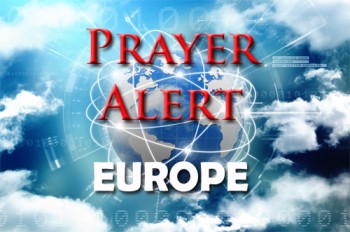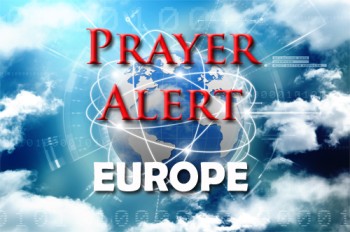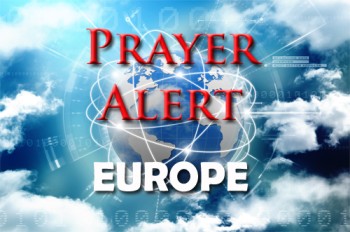Displaying items by tag: Europe
Armenia: bitter dispute escalates between PM and the church
A deepening rift between prime minister Nikol Pashinyan and the Apostolic Church, is threatening to polarise the nation of three million. Tensions erupted after Pashinyan accused Catholicos Karekin II, the Church’s spiritual head, of fathering a child and supporting a coup plot, allegations Karekin denies. The conflict, rooted partly in fallout from Armenia’s 2020 defeat in the Nagorno-Karabakh war, has escalated with arrests of senior clergy and opposition figures, sparking alarms over religious freedom and national unity. Church bells rang an alarm at St Echmiadzin, historically reserved for invasions, signalling the detention of Archbishop Mikael Adjapakhyan, who was later arrested alongside others accused of plotting a coup. The dispute intertwines personal grievances, political rivalries, and historical tensions linked to the powerful 'Karabakh clan'. The World Council of Churches has voiced deep concern, calling for wisdom and justice to prevail. Meanwhile, Armenians fear the confrontation may fracture their society further, both politically and spiritually. See
Ukraine: USA pauses munitions shipment, Russia launches huge aerial assault
US defence secretary Pete Hegseth has paused a planned shipment of advanced munitions to Ukraine amid growing concern over the country’s depleted stockpiles of weapons. The delay, stemming from a defence department review, affects key systems including Patriot interceptors and Hellfire missiles. This reassessment follows years of military aid to Ukraine and operations in the Middle East. While the Biden-era packages had approved these shipments, some are now being withheld, even after arriving in the region. The White House defended the move as prioritising US interests, but Ukrainian officials expressed frustration, calling the decision painful and warning that delays embolden Russian aggression. With Russia intensifying missile and drone attacks - launching the largest aerial assault since the 2022 invasion - Ukrainian leaders stressed the urgency of air defence support. Donald Trump has expressed a desire to supply Patriot missiles but acknowledged shortages. The pause comes as the USA also works to broker a ceasefire in the ongoing war.
Europe: severe heatwave, record temperatures, wildfires
A severe early-summer heatwave is scorching much of Europe, triggering wildfires, evacuations, and health alerts across multiple countries. In Turkey, over 50,000 people have been evacuated due to wildfires, especially near Izmir. France has faced peak temperatures of 40°C, with wildfires prompting evacuations. Spain is on track for its hottest June ever, with Seville reaching 42°C. Italy issued red heat alerts for 16 cities and may restrict working outdoors. Germany is also issuing warnings, urging water conservation while facing disrupted river shipping because the water level of the Rhine has dropped. UN secretary-general António Guterres has commented, ‘Extreme heat is no longer a rare event – it has become the new normal.’ Heatwaves are already the world’s deadliest weather hazard, killing nearly half a million people annually, surpassing the toll from floods, hurricanes, and earthquakes combined.
NATO summit reaffirms collective defence, omits criticism of Russia
NATO allies, including the USA, have reaffirmed their ‘ironclad commitment’ to collective defence at a brief summit in The Hague. The final five‑paragraph communiqué emphasised unity, describing Russia as a ‘long‑term threat’ but stopping short of explicitly condemning its invasion of Ukraine, marking a shift from prior statements. In the only reference to the war, it said: ‘Allies reaffirm their enduring sovereign commitments to provide support to Ukraine, whose security contributes to ours.’ It also reaffirmed NATO’s founding tenet, that an attack on one is an attack on all, despite Trump hinting at differing definitions. A notable commitment was a pledge to raise defence investment to 5% of GDP by 2035. The toned‑down language and ambitious new spending target reflect tensions within the alliance. Meanwhile, on 24 June seventeen people were killed and over a hundred injured in a daytime Russian airstrike: see
Greece: five wildfires break out on Chios
A state of emergency has been declared on the Greek island of Chios as five separate wildfires, fanned by strong winds, are ravaging homes, farms, and infrastructure. The fires broke out within hours of each other, prompting the evacuation of seventeen communities. The authorities have launched an arson investigation, citing the suspicious timing and clustering of the blazes. They have caused widespread damage, destroying homes and cutting power across the island. Nearly two hundred firefighters, backed by aircraft and helicopters, are tackling the flames, with ninety more en route from Athens and Thessaloniki. Residents have joined in the firefighting effort, using buckets and makeshift equipment. This is the first major wildfire this summer for Greece, which is no stranger to devastating fires and extreme heat.
Venice: Jeff Bezos forced by protesters to change wedding plans
Protesters in Venice have claimed an ‘enormous victory’ after forcing US billionaire Jeff Bezos and guests to move their wedding celebration away from the city centre. The three‑day event, featuring A‑list guests like Kim Kardashian and Leonardo DiCaprio, sparked anger over the overt display of wealth and the strain caused by such a huge event. The group No Space for Bezos, supported by activists and environmental campaigners, celebrated the shift as a symbolic win for locals against wealthy elites. One activist said it demonstrated how ordinary citizens can challenge even the powerful. Venice, grappling with rising seas and rising rents, has long been a flashpoint for debates about sustainable tourism and economic equity. City authorities criticised the protest, citing the benefits that wealthy visitors bring. Yet activists insist that the issues of over‑crowding, rising costs, and climate vulnerability must be addressed. The wedding itself will of course proceed, but for many Venetians, this moment has highlighted urgent questions about the future of their historic city.
Ukraine: why is it one of the world’s most digital countries?
On the day Russia launched its full-scale invasion of Ukraine in 2022, Deputy Minister Oleksandr Bornyakov was caught in a firefight in Kyiv. Despite the chaos of war, Bornyakov and his team pressed forward with Ukraine’s ambitious digital transformation project: the Diia app. Launched in 2019, Diia enables citizens to access over forty government services and thirty personal documents - from tax payments to voting in Eurovision - directly from their mobile phones. A web portal adds access to 130 services. Now serving over 22 million users, Diia is considered one of the world’s most advanced digital government services. Its success stems from Ukraine’s large, affordable tech workforce and the foundational development of a centralised data exchange. The urgency of war accelerated innovation, enabling the swift rollout of wartime tools like damage compensation and troop reporting. Looking ahead, Ukraine plans to incorporate AI to make services even more seamless, but experts advise caution about this.
Sweden: Think Pink CEO convicted in environmental crime case
Entrepreneur Fariba Vancor has been sentenced to six years in prison in what is considered Sweden’s largest environmental crime case. As CEO of the waste company Think Pink, Vancor oversaw the illegal dumping of hundreds of thousands of tonnes of toxic waste across nineteen sites. The court found that Think Pink, which was contracted by municipalities and private clients to manage waste, instead abandoned dangerous materials including PCBs, mercury, lead, and arsenic - threatening air, water, and soil quality. The judge described the company as operating like a pyramid scheme, with criminal negligence causing widespread environmental damage. Out of eleven individuals tried, ten were convicted: five received prison sentences and were ordered to pay approximately £19 million in damages. The case, which required years of investigation and 150 witnesses, resulted in a verdict nearly 700 pages long. Vancor has denied wrongdoing and may appeal.
Austria: national mourning after gunman kills ten
Austria has declared three days of national mourning after a 21-year-old former student fatally shot eight pupils and a teacher at his old high school in Graz, later taking his own life. A tenth victim, critically injured, has since died, and eleven others remain in hospital. Austria’s chancellor, Christian Stocker, called it a ‘national tragedy’, and the president said, ‘What happened today … strikes our country at the heart. These were young people who had their whole lives ahead of them.’ The gunman, armed with legally owned firearms, opened fire in two classrooms. His motive remains unclear as the investigation continues. Mass shootings are rare in Austria, even though the nation has one of Europe’s highest civilian gun ownership rates. In response to the tragedy, crisis teams are supporting affected families and the community. The mayor of Vienna stressed that hate and violence must not prevail, and European leaders have expressed deep sorrow and sympathy.
Belgium: latest signs of booming illegal sales of ketamine
Customs officers at Brussels airport were stunned when crates expected to contain ketamine were actually full of salt. Authorities believe the drug was diverted into the black market during its complex journey from India, exploiting loopholes in Europe’s varied regulations. Ketamine, classified as a medicine in some nations, is shipped legally through multiple borders, making tracking difficult. Criminals forge documents, use front companies, and manipulate legal supply chains to mask their operations. Since 2023, Belgian investigators have uncovered 28 similar cases involving an estimated 28 tonnes of ketamine. The drug’s illegal trade is growing so fast that gangs now profit more from ketamine than from cocaine. In the UK, ketamine use surged 85% in one year, linked to 53 deaths in 2023. Its legal use in hospitals complicates enforcement. European police forces are now coordinating with Indian authorities to stem the flow.

